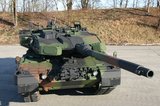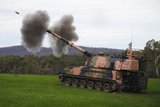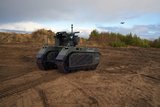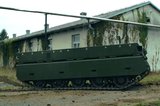Syria issues pardon for army deserters
Syria's President Bashar al-Assad issued a general amnesty Tuesday for army deserters and those who have avoided compulsory military service during the country's seven-year civil war, state media said.
Tens of thousands of Syrian soldiers have deserted since the start of the war in 2011, some of them joining rebel factions and others either hiding at home or escaping abroad.
A similar number is estimated to have avoided completing compulsory military service. The fear of being sent to the front line has kept many male Syrian refugees from returning to their home country.
On Tuesday, Assad declared "a general amnesty from any penalties for military deserters inside and outside the country," SANA said.
Those who had been charged with deserting but who were on the run inside the country would have to hand themselves in within four months to Syrian authorities.
Charged deserters who fled outside Syria would have six months to present themselves to authorities, SANA said.
It did not specify whether defectors who then went on to fight the Syrian army were included in the pardon. While it mentions being exempt from "penalties", Tuesday's decree did not specify if defectors or draft dodgers would ultimately be sent to serve.
The decree includes "a general amnesty from any penalties for crimes under Law 30 for Military Service", which governs the country's conscription.
Before Syria's conflict erupted in 2011, men aged 18 and older had to serve up to two years in the army, after which they became reserves available for call-up in times of crisis.
In the past seven years, fatalities, injuries and defections are estimated to have halved the once 300,000-strong army.
To compensate, the force has relied on reservists and militias as well as indefinitely extending military service for young conscripts.
An estimated 150,000 Syrian men are dodging compulsory military service, according to the Syrian Observatory for Human Rights.
Several similar pardons have been granted in recent years but it is unclear how many Syrians made use of them.
More than 360,000 people have been killed and millions displaced from their homes since the war started with the brutal repression of anti-Assad protests.
In May, the army issued orders for men conscripted for compulsory service in 2010 to return home after eight years of fighting.























